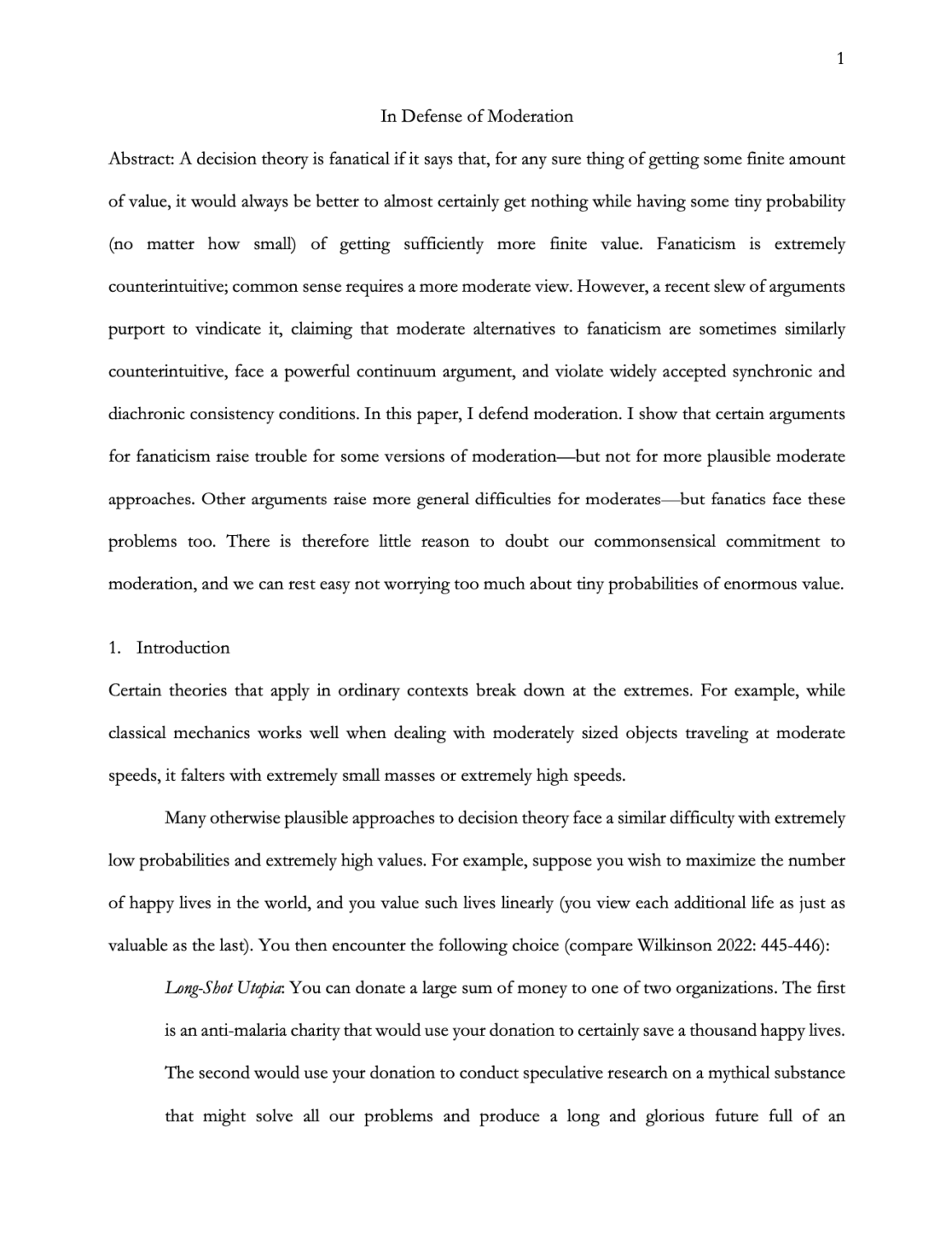A decision theory is fanatical if it says that, for any sure thing of getting some finite amount of value, it would always be better to almost certainly get nothing while having some tiny probability (no matter how small) of getting sufficiently more finite value. Fanaticism is extremely counterintuitive; common sense requires a more moderate view. However, a recent slew of arguments purport to vindicate it, claiming that moderate alternatives to fanaticism are sometimes similarly counterintuitive, face a powerful continuum argument, and violate widely accepted synchronic and diachronic consistency conditions. In this paper, I defend moderation. I show that certain arguments for fanaticism raise trouble for some versions of moderation—but not for more plausible moderate approaches. Other arguments raise more general difficulties for moderates—but fanatics face these problems too. There is therefore little reason to doubt our commonsensical commitment to moderation, and we can rest easy not worrying too much about tiny probabilities of enormous value.
Other working papers
Shutdownable Agents through POST-Agency – Elliott Thornley (Global Priorities Institute, University of Oxford)
Many fear that future artificial agents will resist shutdown. I present an idea – the POST-Agents Proposal – for ensuring that doesn’t happen. I propose that we train agents to satisfy Preferences Only Between Same-Length Trajectories (POST). I then prove that POST – together with other conditions – implies Neutrality+: the agent maximizes expected utility, ignoring the probability distribution over trajectory-lengths. I argue that Neutrality+ keeps agents shutdownable and allows them to be useful.
The long-run relationship between per capita incomes and population size – Maya Eden (University of Zurich) and Kevin Kuruc (Population Wellbeing Initiative, University of Texas at Austin)
The relationship between the human population size and per capita incomes has long been debated. Two competing forces feature prominently in these discussions. On the one hand, a larger population means that limited natural resources must be shared among more people. On the other hand, more people means more innovation and faster technological progress, other things equal. We study a model that features both of these channels. A calibration suggests that, in the long run, (marginal) increases in population would…
How to resist the Fading Qualia Argument – Andreas Mogensen (Global Priorities Institute, University of Oxford)
The Fading Qualia Argument is perhaps the strongest argument supporting the view that in order for a system to be conscious, it does not need to be made of anything in particular, so long as its internal parts have the right causal relations to each other and to the system’s inputs and outputs. I show how the argument can be resisted given two key assumptions: that consciousness is associated with vagueness at its boundaries and that conscious neural activity has a particular kind of holistic structure. …

